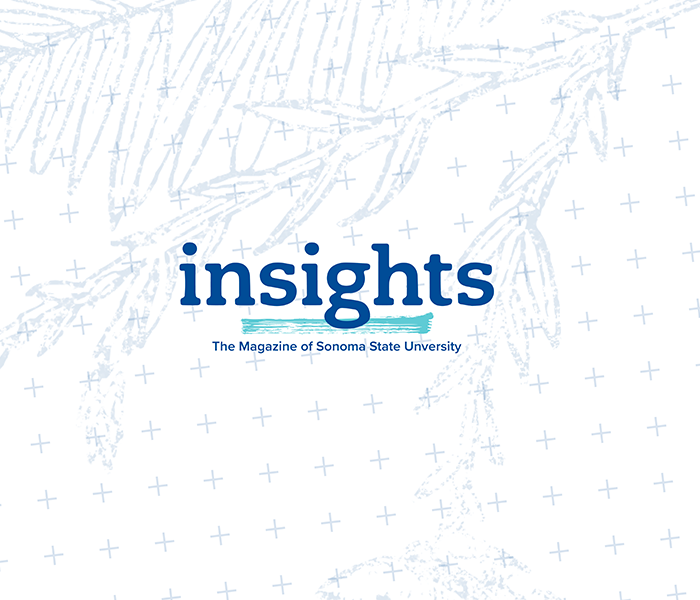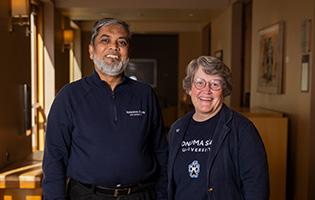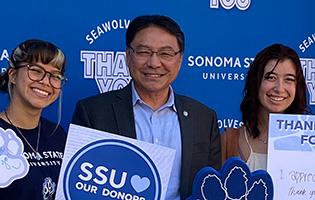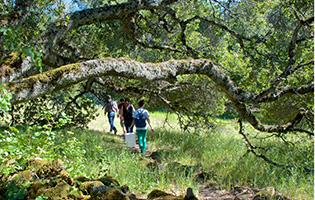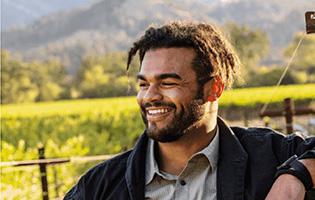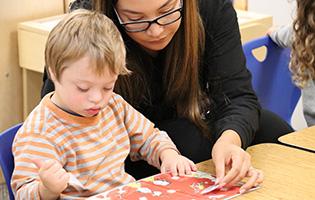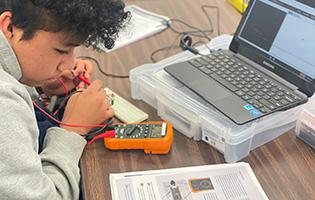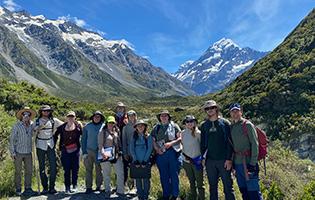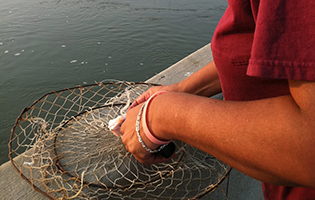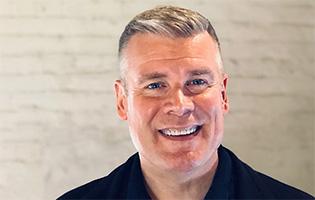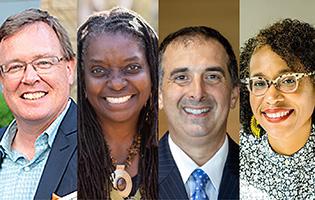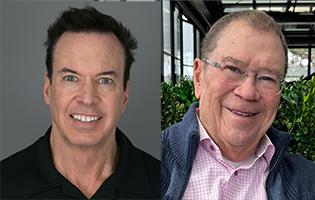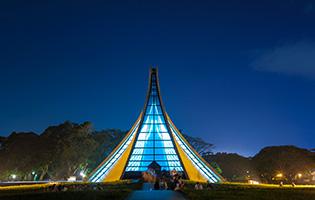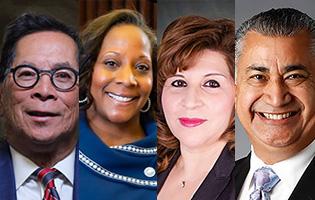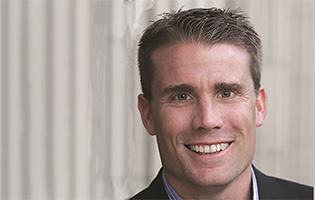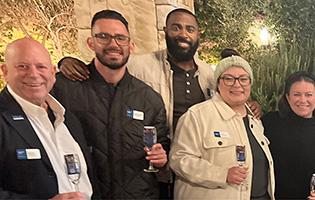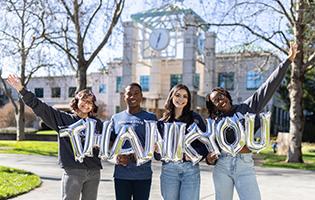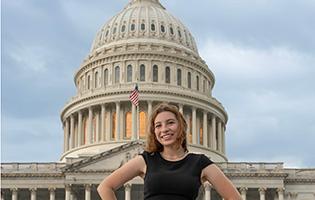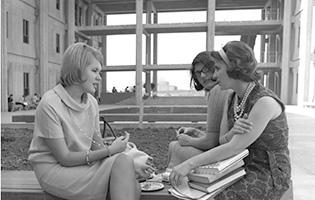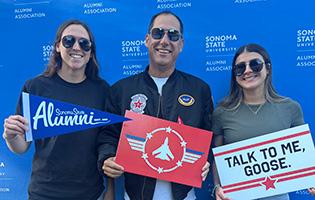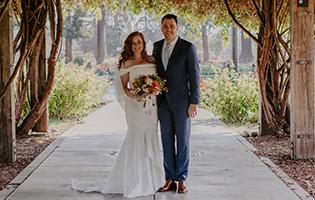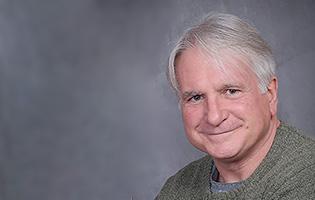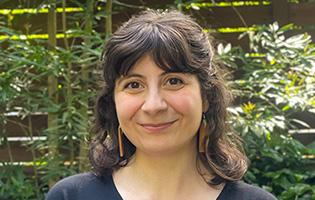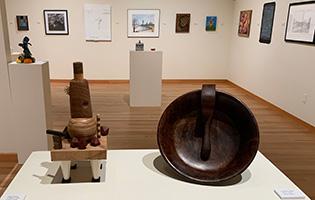SEEDS sprouts community-minded teachers
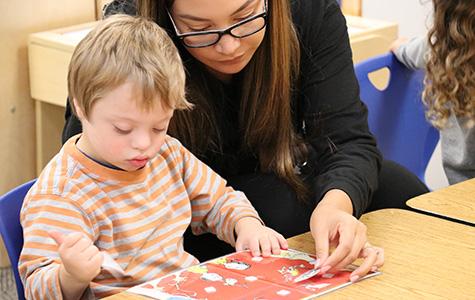
in the qualified teacher pool locally and nationally.
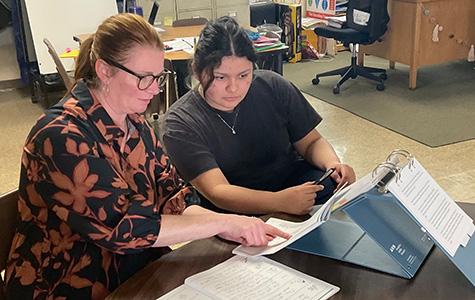
assessment data with her mentor teacher, Emily Mitchell.
The Seawolves to Education Specialists (SEEDS) program is creating more than just a new cohort of verdant, well-trained teachers. It’s broadening a heartfelt community of educators.
SEEDS launched in 2023 to support students in the SSU Special Education credential program under the co-direction of Elizabeth Ducy, SSU Associate Professor of Special Education, and Graduate Studies Coordinator Jennifer Mahdavi. The duo secured a $1 million federal grant for the program through the U.S. Department of Education Office of Special Education to increase the number of diverse credentialed special education teachers.
Ducy said she and her team regard having a disability as an added benefit to the human experience.
“We recognize that having a disability is an asset, and it is a rich variation of human diversity,” Ducy said, referencing the department’s philosophy and culture. “It also brings value to our classrooms and communities.”
The project aims to provide diverse credentialed special education teachers the training needed to serve children and youth with disabilities (ages 5-22). Its benefits include tutoring, advising sessions, professional development, and up to $22,000 in financial assistance.
“Our mission is to prepare teachers who are well-versed in meeting the academic, social, and behavioral needs of students with disabilities,” Ducy said. “But our larger goal is to build leaders in education who will support their students, their schools, their families, and also support each other and the project. It’s cyclical in nature.”
Struggling to navigate her prior college as a first-generation Latinx college student, Bianca LeMastern said she feels seen and supported as a SEEDS scholar. She hopes to one day be an example in her community, “For children of color who haven’t had teachers who look like them, I hope to say, ‘You can do this too.’”
Once SEEDS scholars finish their special education credential and are in their first year of teaching, Ducy said they will be invited to return and lead community meetings with new scholars.
Mahdavi recently attended a Special Education Local Plan Area advisory committee meeting where five of the 40 people in attendance were former students and are now district-level directors of special education or student services.
“Having known and taught these accomplished individuals at a formative stage and seeing them in leadership positions today was a profound privilege.” Mahdavi said. “What we do in our special education teacher program at Sonoma State has lasting positive ripples through our community.”
Special Education credential program graduates Meaghan King and Katya Robinson are heavily invested in what SEEDS grows. Both women have been named Sonoma County Teacher of the Year – Robinson in 2019 and King in 2023 – and now partner to advocate and support the project.
King, mentor to a SEEDS scholar doing fieldwork in her Herbert Slater Middle School class, said the project’s fellowship for new educators is essential.
“The program offers a vital community to new teachers. It is the heart of what we are doing with them,” said King, who is also the Extensive Support Needs department chair and teacher.
Robinson agreed with her colleague and said SEEDS and its cohorts are like one big family.
“There is a community in all we do, for the students, the school, the families, and the new teachers. That is what keeps our young teachers returning and why we have success with them,” she said.
Once a semester, the cohorts gather for SEEDS socials to foster connection.
“We just got together in December, and our agenda was to wrap the students in a warm hug,” Ducy said.
King said having students with disabilities is complex and challenging.
“You have to face things you would not have to when working with neurotypical kids. So having somebody next to you say, ‘You got this. I know what that’s like,’ is extremely valuable,” she said.
In the United States, 65 percent of classrooms are understaffed in special education. Programs like SEEDS are part of the solution to that problem.
“Special Education is the greatest world ever,” Robinson said. “The concept of SEEDS is so fulfilling and has wonderful implications for our students, teachers, families, and the whole community.”
—Krista Sherer


